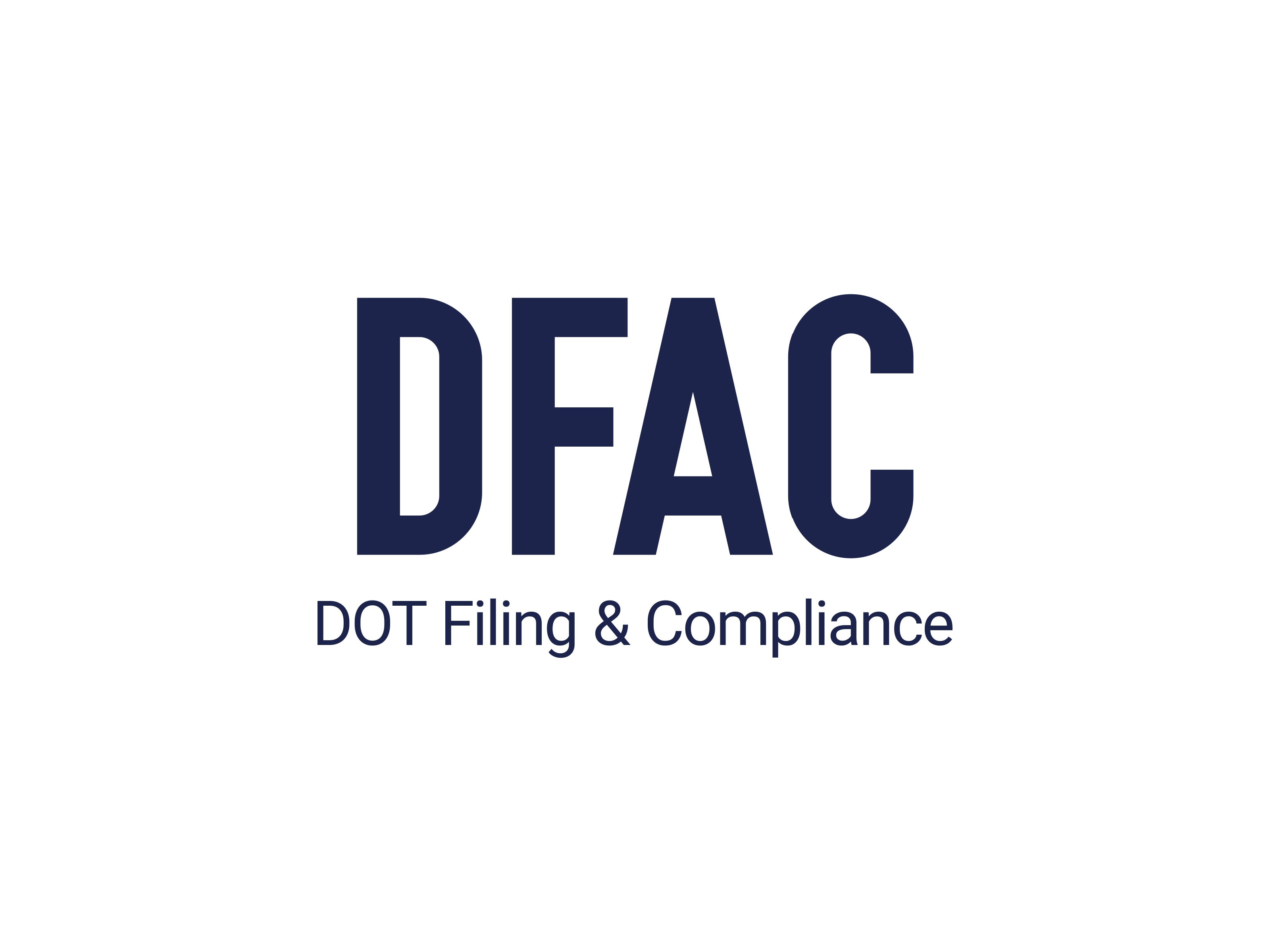FMCSA & DOT Compliance Needs
DFAC-register.com is your go-to place for interstate or interstate carriers regulations. We make understanding regulations easy by giving you the latest info on DOT, FMCSA, and state rules.
Clear Guidance
We help you understand crucial aspects such as driving limits, vehicle maintenance requirements, and necessary licenses. Our goal is to ensure your safety and compliance while on the road.
Stay Updated
Receive timely alerts whenever regulations change, ensuring you're always prepared. Whether it's new driving restrictions or updated safety protocols, we've got you covered.
Tools and Help
Access user-friendly forms, checklists, and guides that streamline compliance. Whether you're an independent driver or managing a fleet, our tools are designed to assist you effectively.
Connect with Others
Join our vibrant community to exchange tips and seek advice from fellow drivers. We're here to support you every step of the way.
FAQ | Frequently Asked Questions FMCSA Regulations
The USDOT number is a unique code issued by the US Department of Transportation for commercial vehicles that operate across state lines or as part of a federally regulated industry. It helps track the safety record of these vehicles and their operators. The number is a seven-digit code that must be displayed on the exterior of the vehicle along with the carrier’s company name and address.
In the United States, the Federal Motor Carrier Safety Administration (FMCSA) is the agency responsible for regulating the commercial motor carrier industry. One of the ways the FMCSA tracks and monitors motor carriers is by assigning them an MC Number, which stands for “Motor Carrier Number”.
An MC Number is a unique identifier that is assigned to a motor carrier company that operates in interstate commerce, which means transporting goods or passengers across state lines. This number is used by the FMCSA to identify the carrier and to ensure that they comply with federal safety regulations.
A US DOT number identifies carriers operating in interstate commerce while an MC number identifies a carrier who transports regulated commodities for hire in interstate commerce. Generally, items that have been changed from their natural state are regulated commodities requiring an MC number. Determining whether an MC number versus a US DOT number is required is made by the Federal Motor Carrier Safety Administration, not the ND Highway Patrol.
UCR stands for “Unified Carrier Registration”. UCR registration is a requirement for interstate carriers operating in the United States. The UCR program requires carriers to register and pay an annual fee based on the size of their fleet. The fees collected go towards funding state and federal motor carrier safety programs. Carriers subject to UCR registration include those transporting property or passengers in interstate commerce, as well as brokers and freight forwarders. Failure to comply with UCR registration requirements can result in fines and penalties.
An MCS-150 update (aka Biennial Update) is required by the FMCSA every two years at a minimum to obtain and maintain your USDOT number.
In addition to submitting biennial updates, you’ll need to file an MCS-150 update if you have:
- Changed your business address
- Changed your company name
- Changed your operating authority
- Become a hazardous materials carrier
- Added to or reduced the number of vehicles in your fleet
- Make any other changes to your business
Any time you make changes to your trucking business and operations, you should file an MCS-150 update.
BOC-3 is a form that motor carriers or freight brokers in the United States are required to file with the Federal Motor Carrier Safety Administration (FMCSA). This form designates process agents for each state in which the carrier or broker operates. The process agent acts as a representative for the carrier or broker in legal proceedings. The BOC-3 form is necessary for carriers or brokers to obtain their operating authority or broker authority.
A CA Number, also known as a California Number, is a number issued by the California Highway Patrol (CHP) and is necessary for identifying yourself as a California-based commercial vehicle. It is also a required item for obtaining a California Motor Carrier Permit (MCP).
The state of California processes your CA Number order within 1-5 business days. Once you use it to apply for your MCP, the MCP is usually issued in 3-6 weeks. Proof of insurance and the fees must be mailed in with the application to the state of California. The state of California charges $250 for the non-expiring MCP. If you operate vehicles that require a CDL, you will also be required to enroll in the EPN – Employer Pull Notification program as part of the process for the MCP. All California-based carriers with a GVW over 10,000 lbs. are required to have a CA Number and MCP. Out-of-state carriers who operate in California are not required to get a CA Number or MCP.


